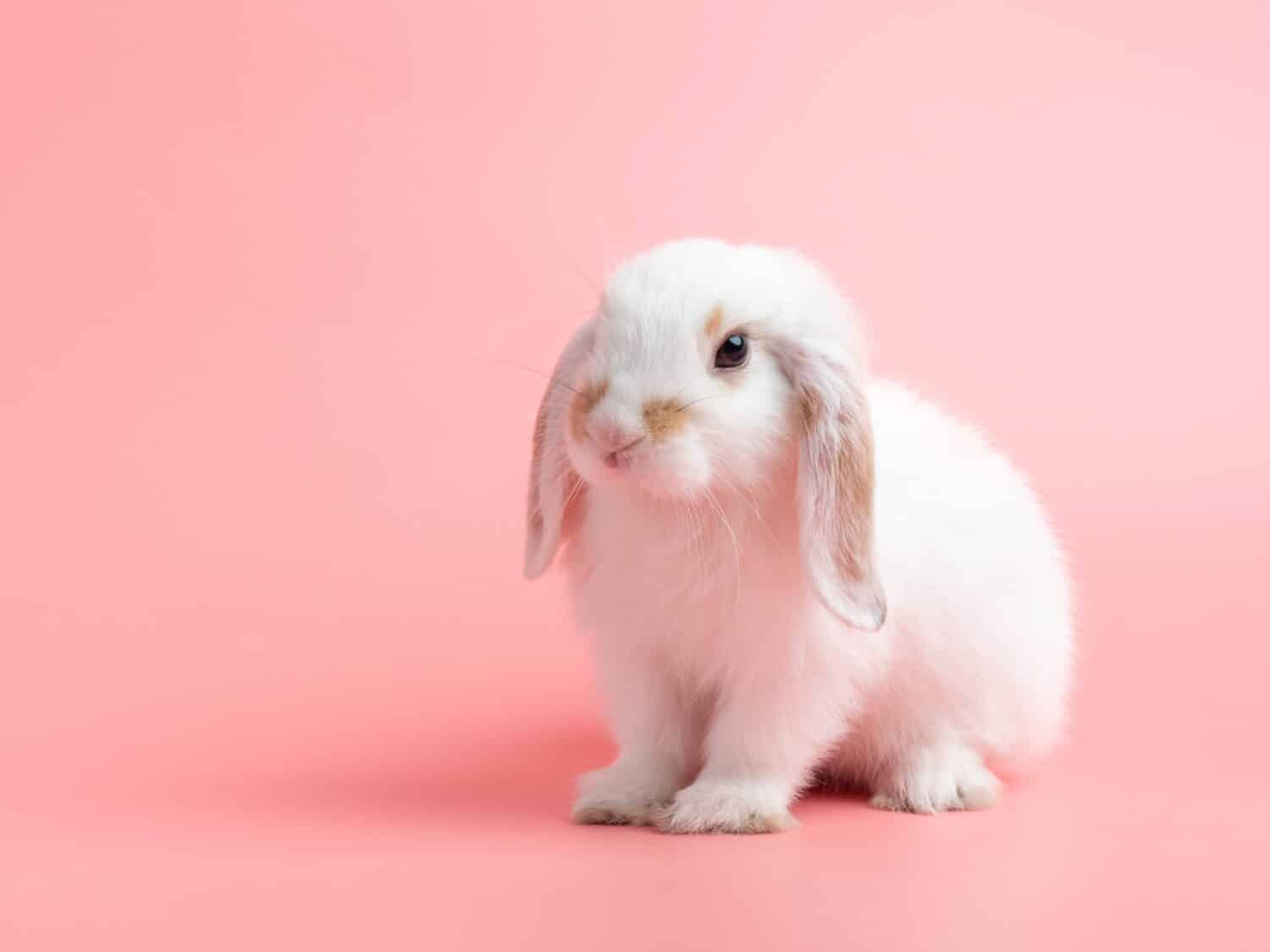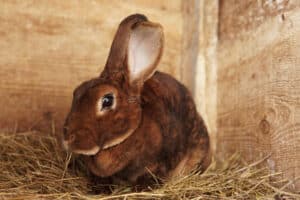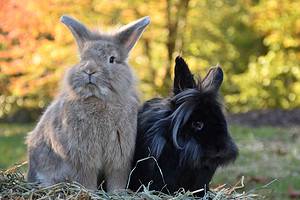Part of being a responsible Holland lop owner is ensuring that your rabbits are receiving the right care they need to stay healthy for the rest of their lives. For most rabbits, this could be for up to a decade. It is important to understand the lifespan of your rabbit before getting them since many breeds are a 10-year commitment. This is true for the Holland lop, which has a similar life expectancy to many other dwarf rabbit breeds.
Holland Lop Overview and Key Points
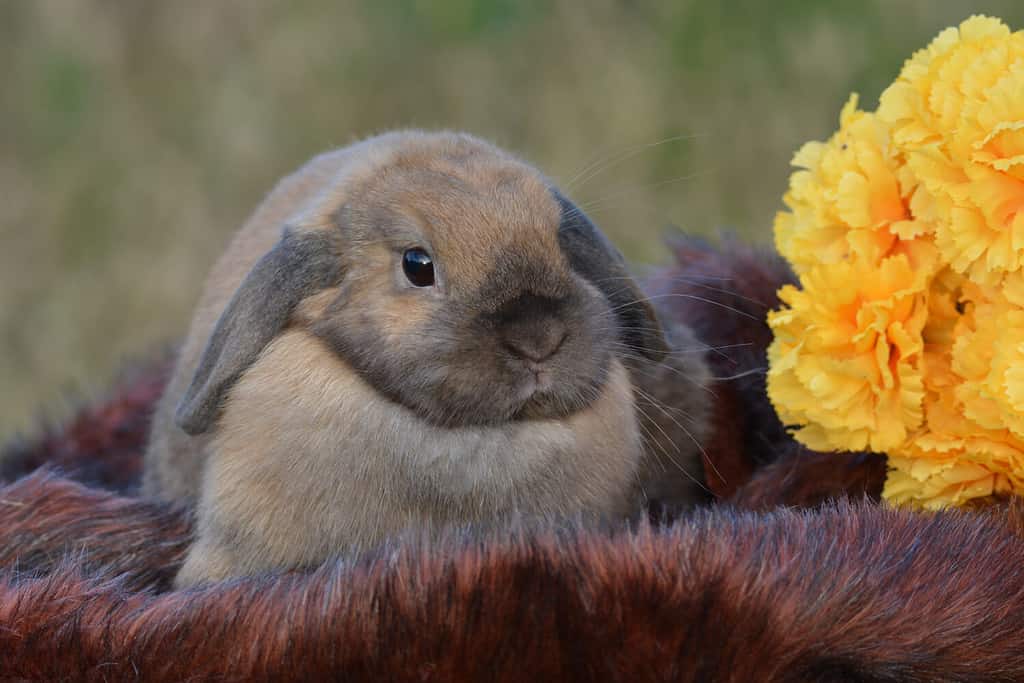
The Holland lop is a dwarf rabbit breed that originates from the Netherlands.
©C. Hamilton/Shutterstock.com
Before we discuss the Holland lop’s lifespan, let’s go over the breed’s key points. These key points are good for reference and will be discussed more in-depth throughout the article.
- Holland lop rabbits originate from Tilburg in the Netherlands. They were originally bred by Dutch breeder Adrian de Kock.
- Their popularity as pets arose in the 1980s, a year after the breed was formally recognized by the American Rabbit Breeders Association (ARBA).
- Like most pets, Holland lops require proper care and access to veterinary treatment when they are ill or injured. Certain diseases and injuries could cause your Holland lop rabbit to die prematurely.
- Hay is a very important part of your Holland lops diet, and it should make up around 80%. Your Holland lop may face several health complications if they do not have hay or grasses in their diet which could end up shortening their lifespan.
- When you get a Holland lop rabbit, you are committing to caring for them for the next 10 years of their life.
- Like most rabbit breeds, some Holland lops can live for up to 12 years, although it is uncommon.
- Getting your Holland lop spayed or neutered by a veterinarian can help prevent their lifespan from being shortened by reproductive problems.
- There are many different varieties of Holland lop and they weigh around 2 to 4 pounds as adults.
How Long Do Holland Lop Rabbits Live For?
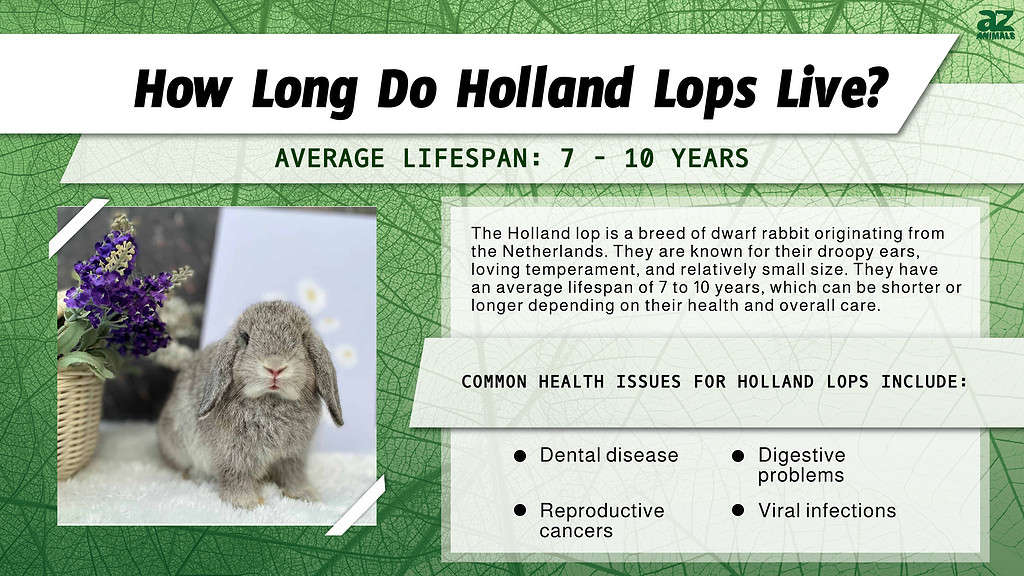
Holland lop rabbits have an average lifespan of 7 to 10 years with proper care. This is similar to certain large dog breeds and other dwarf rabbits like the lionhead and mini lop. If you do decide to get a Holland lop, you will need to commit to caring for a Holland lop for the next 10 years of your life.
It is not unheard of for some Holland lops to exceed their average lifespan, but it is uncommon. Some Holland lops have lived till 12 years of age, while others haven’t made it passed 6 years. Most rabbit breeds, including the Holland lop, are capable of exceeding 10 years of age with proper care, medical treatment, and an appropriate diet.
Your Holland lop’s genetics, health, and overall care can impact their lifespan. A well-cared-for Holland lop with few health problems and access to veterinary care is definitely going to outlive a poorly-bred Holland lop that is ill.
Outdoor Holland lops may not live as long as indoor ones, since they are exposed to unfavorable weather elements, pests, and predators outdoors.
Furthermore, certain health problems could shorten your Holland lop’s lifespan. While some of those health problems can be corrected by veterinary treatment, they can end up shortening your Holland lop’s lifespan.
The 5 Life Stages of a Holland Lop
Holland lops go through a total of five life stages. These life stages start from birth all the way to their senior years.
1. Kit (0-3 Months)
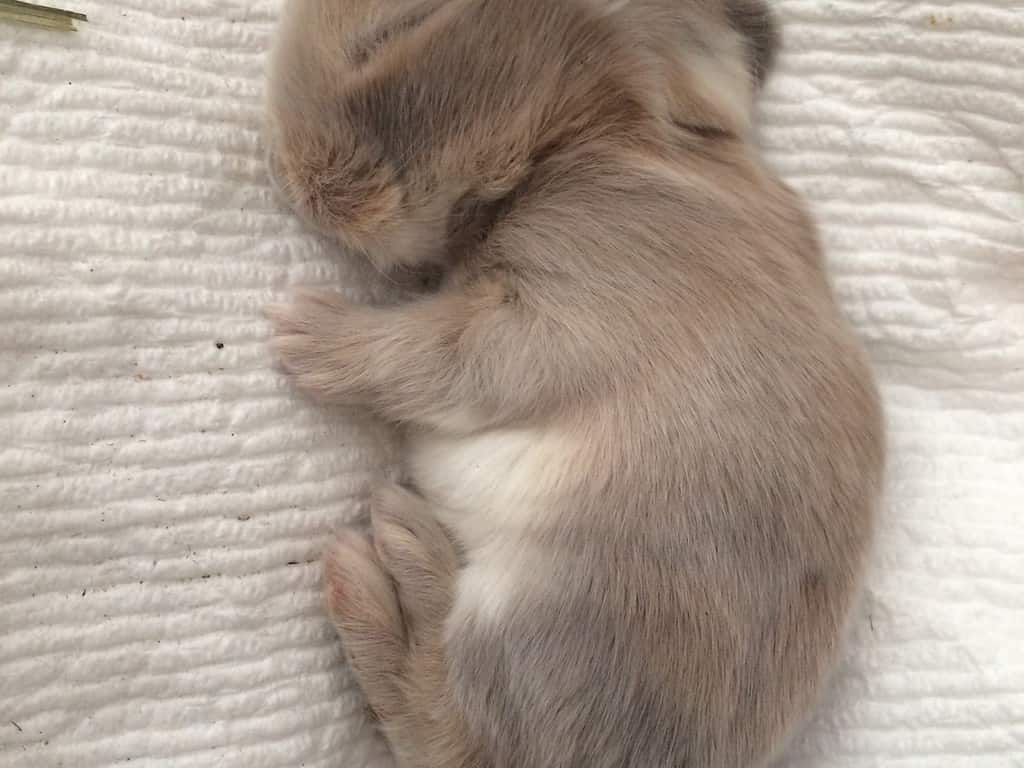
Holland lop kits are tiny and rely on their mother for survival.
©Ellethwen Rue/Shutterstock.com
A newborn rabbit is called a kit until they are around 3 months of age. A Holland lop kit will be very small, only weighing between 2.5 to 3.5 ounces. They will not show their true adult colors just yet and will have a pinkish coloration around their nose and eyes. They rely on their mother for food and warmth for the first 8 weeks of their life. Their ears will not have lopped yet and appear upright for the first few months.
2. Juvenile (3-6 Months)
At this stage, a Holland lop will be fully independent and will not rely on their mother for survival. Some bucks (male) will be sexually mature at around 4 months of age and capable of reproducing. However, you should not breed any bucks until they are at least 6 months old. Doe’s (female) will become sexually mature at 6 months old.
You may notice hormone-related behaviors in your juvenile Holland lops, which can sometimes be mistaken as aggression. Your rabbit’s veterinarian may recommend spaying or neutering to prevent unwanted hormonal behaviors and prevent accidental litters.
3. Young Adult (6-12 Months)
A young adult Holland lop will have fully lopped ears that droop down either side of their head. They will also have developed their true adult coloration, although it is able to change slightly depending on their genetics, health, and certain environmental factors. Your Holland lop should have received most of the necessary vaccinations by this life stage. Some veterinarians might recommend a booster shot for your Holland lop every year.
4. Adult (1 – 5 Years)
An adult Holland lop can weigh anywhere from 2 to 4 pounds. As a dwarf rabbit breed, Holland lops do not get very big. They have an adult size of 5 to 10 inches long, and the bucks are usually larger than the does. It is important for your adult Holland lop to receive routine veterinary checkups at least once a year.
5. Senior (5+ Years)
At 5 or 6 years of age, your Holland lop will be considered a senior. You might notice that they slow down and develop certain age-related health problems during this life stage. Your senior Holland lop may need more frequent routine veterinary checkups to ensure they are in good health.
How To Improve Your Holland Lops Lifespan
We all want our beloved rabbits to live for as long as possible. Fortunately, there are ways you can ensure that your Holland lop is healthy enough to live for around 7 to 10 years or possibly even longer.
Proper Care
Caring for your Holland lop properly is very important if you want them to live a long and healthy life. Your Holland lop requires a safe and comfortable enclosure, a balanced diet, hay, and medical treatment. They need to be protected from potential injury while having plenty of enrichment in their lives to prevent them from getting bored.
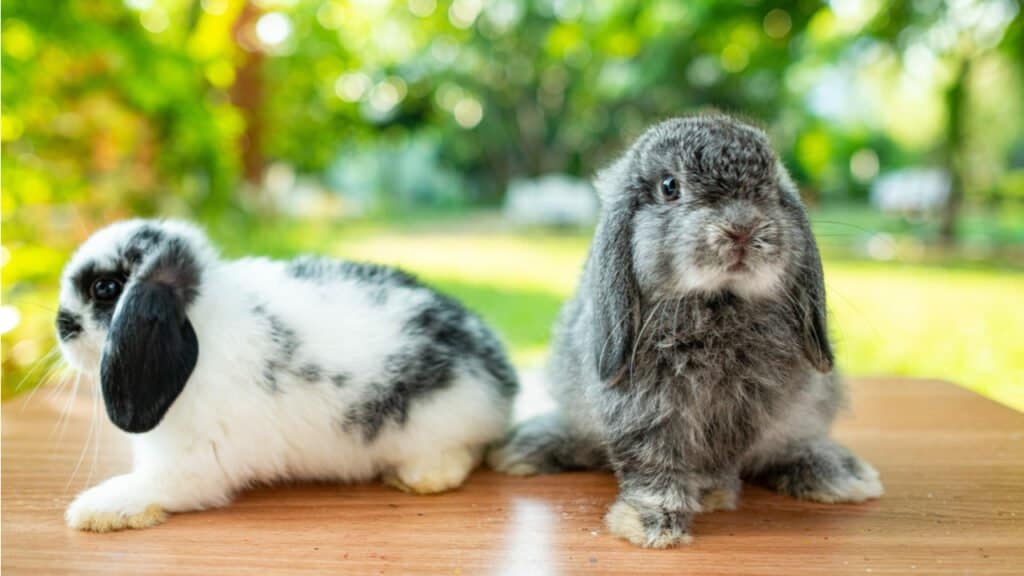
Your Holland lop will be able to live a happy and fulfilling life with the right care.
©suriyachan/Shutterstock.com
Medical Treatment
Holland lops are prone to several health problems like other rabbit breeds that require medical treatment from an exotic veterinarian. These health problems include dental diseases, bladder issues, parasites, and digestive issues. Taking your Holland lop to a veterinarian can be costly, so you will need to set money aside for medical emergencies.
Spaying/Neutering
Your Holland lops veterinarian might recommend that you get them sterilized. Getting your Holland lop spayed or neutered can prevent certain reproductive problems like uterine or testicular cancer. These types of cancers are often fatal to rabbits and can end up shortening their lifespan. By getting your Holland lop sterilized, you can reduce these risks.
Tip: Before getting your Holland lop spayed or neutered, ask their veterinarian to run a test to determine which anesthetic is safe for them. Rabbits can be allergic to certain types of anesthesia which may cause complications during surgery.
Lots of Hay
Holland lops should have constant access to hay or dry grasses daily. Hay is incredibly important for rabbits and forms around 80% of their diet. Holland lops need the essential fiber and nourishment hay provides to keep their digestive tract healthy. This makes hay crucial for your Holland lop’s health and therefore their lifespan.
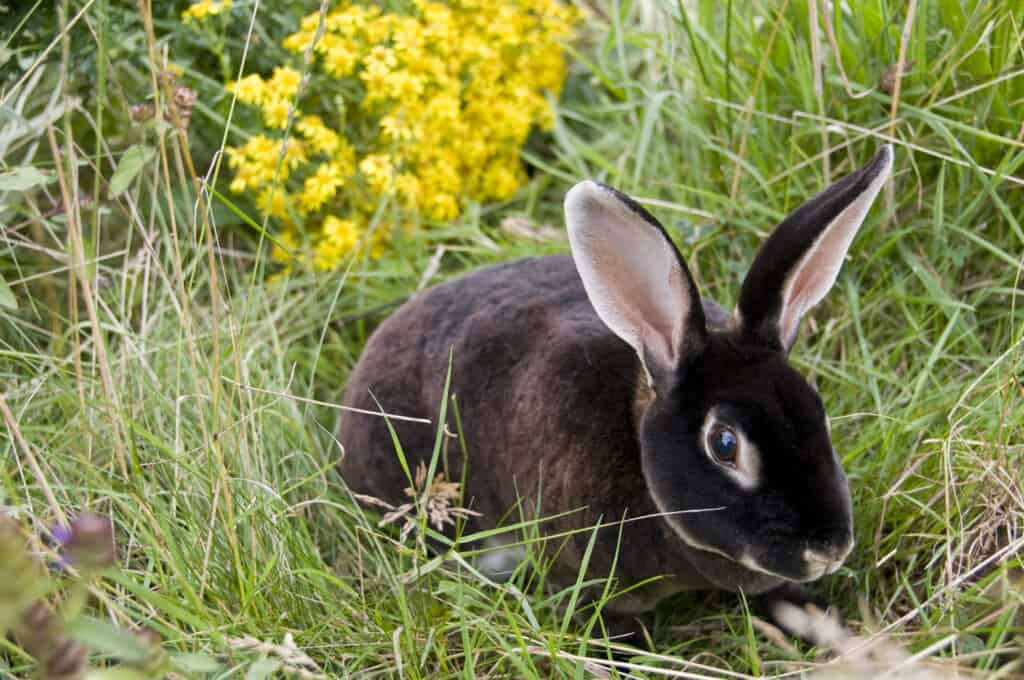
Hay is the primary food for a Holland lop and every other rabbit breed. It should ideally make up 80% of their diet.
©Rob Hyrons/Shutterstock.com
Vaccinations
Certain health problems that could shorten your Holland lop’s lifespan can be prevented by vaccinations. These vaccinations protect your Holland lop from both acute and fatal diseases like myxomatosis, Rabbit Viral Haemorrhagic Disease (RVHD-1), and RVHD-2.
Try to Keep Them Indoors
In some cases, an indoor rabbit may live longer than an outdoor rabbit. Your outdoor Holland lop could be exposed to rain, constant drafts, and frequent temperature changes throughout the day and night. If their enclosure is not secure, predators could get into their enclosure, or your Holland lop could escape.
Pests like mosquitos and ticks that frequent the outdoors could put your outdoor Holland lop at risk of deadly diseases like Lyme disease or myxomatosis if they are not vaccinated. However, that does not mean that every outdoor rabbit is guaranteed to have a shortened lifespan, but there are more risk factors to consider.
Those factors could end up shortening your outdoor Holland lops lifespan and is a lower risk for indoor rabbits. Raising them indoors in a spacious and secure enclosure with a safe area to roam is a great way to improve your Holland lop’s lifespan.
Conclusion
You can expect your Holland lop rabbit to live for 7 to 10 years of age. With proper care, some Holland lops could live for one or two years longer than their average lifespan. Ensuring that your Holland lop is cared for properly is one of the best ways to keep them happy and extend their lifespan.
Thank you for reading! Have some feedback for us? Contact the AZ Animals editorial team.

